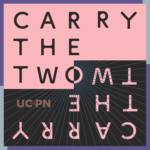Mathematics and Voting
Plurality is better than not having a vote, but mathematics shows that there are much better ways to capture the will of the people.
Show Notes
IMSI is very proud to announce that Carry the Two is back and with a new co-host, IMSI’s new Director of Communications and Engagement Sam Hansen!
We in the United States are deep in the middle of a major national election, and over half of the world’s population also have elections in 2024. This is why Carry the Two is going to focus on the intersection of mathematics and democracy for our new season.
In this episode, the first episode of our mathematics and democracy season, we speak with mathematician Ismar Volić of Wellesley College and Director of the Institute for Mathematics and Democracy and Victoria Mooers, an economics PhD student at Columbia University. We discuss what mathematics has to say about our current plurality voting system, how switching to preference ranking votings systems could limit polarization and negative campaigning, and why too much delegation causes problems for those pushing for Liquid Democracy.
Find our transcript here: Google Doc or .txt file
Curious to learn more? Check out these additional links:
Making Democracy Count: How Mathematics Improves Voting, Electoral Maps, and Representation
Institute for Mathematics and Democracy
Liquid Democracy. Two Experiments on Delegation in Voting
Follow more of IMSI’s work: www.IMSI.institute, (twitter) @IMSI_institute, (mastodon) https://sciencemastodon.com/@IMSI, (instagram) IMSI.institute
Music by Blue Dot Sessions
The Institute for Mathematical and Statistical Innovation (IMSI) is funded by NSF grant DMS-1929348